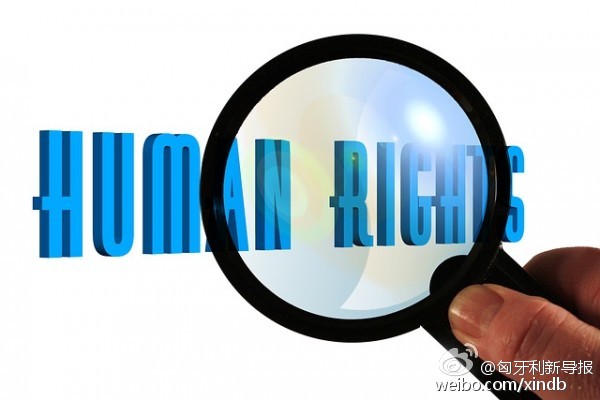

 |
China published two reports last Thursday, one titled "Human Rights Record of the U.S. in 2015" and the other “Chronology of Human Rights Violations of the U.S. in 2015.” As their titles suggest, both reports blasted the U.S. when it comes to human rights.
The two documents can hopefully serve as a reminder for the U.S. to think about its own human rights record before calling out other countries for violations, as the superpower so commonly does.
The facts cited in the report expose some serious shortcomings in the country’s human rights record. For example, the use of guns is out of control in the U.S., causing 13,136 deaths in 2015. U.S. police also frequently display excessive violence, fatally shooting 965 people last year, which is made worse by the fact that very few of the offending officers were disciplined for their abuse of power.
In 2015, more than 560,000 people nationwide were homeless. Race relations are also near the worst they have been in almost two decades. Sixty-one percent of Americans characterized race relations in the U.S. as "bad," and 88 percent of African-Americans said they had been treated unfairly by police. What’s more, 68 percent of African-Americans believe the American criminal justice system is racially biased.
On college campuses, 23 percent of undergraduate women said they had been victims of non-consensual sexual contact. Meanwhile, air strikes launched by the U.S. in Iraq and Syria have killed thousands of civilians.
The problematic human rights record in the U.S. comes not only from neglect, but also arrogance.
Starting in the 1970s, the U.S. State Department has issued an annual report on human rights practices. The report is never shy about criticizing other countries' records, but in doing so it also attracts attention to problems happening right in the U.S. — especially since the U.S. clearly views itself as a "model" in this regard.
The double standard the U.S. has for domestic and foreign human rights violations very clearly serves the country’s own interests. Constantine Kosachev, head of Russia's Federation Council Committee for International Relations, pointed out that human rights have become a kind of tool for the U.S. to implement its foreign policy and apply pressure to those countries that resist. He added that the State Department generally gives positive grades to its allies.
However, the disingenuous policies of the U.S. unmistakably contradict the cornerstone of international relations, and do not bring the country any credibility. In recent years, there have been more and more voices from the international community criticizing the U.S.'s hypocrisy in human rights diplomacy. According to Everhard Holtmann from Humboldt University of Berlin, and to Alessio Bruni, vice-president of the U.N. Committee Against Torture, the U.S. now stands at a turning point. The country needs to introspect on its own human rights policies and make some important changes.
If the U.S. really is worried about issues of human rights, it should start by considering its own violations and take effective action to serve its people.
 The evolution of J-10 fighter
The evolution of J-10 fighter Top 10 Asian beauties in 2016
Top 10 Asian beauties in 2016 What's happening in Xisha Islands?
What's happening in Xisha Islands? When female soldiers meet flowers
When female soldiers meet flowers North Sea Fleet conducts drill in West Pacific Ocean
North Sea Fleet conducts drill in West Pacific Ocean Old photos record the change of Sichuan over a century
Old photos record the change of Sichuan over a century Breathtaking aerial photos of tulip blossoms in C China
Breathtaking aerial photos of tulip blossoms in C China Horrific: Pit swallows 25 tons of fish overnight
Horrific: Pit swallows 25 tons of fish overnight Vietnamese Su-30 fighters fly over Nanwei Island in South China Sea
Vietnamese Su-30 fighters fly over Nanwei Island in South China Sea Top 20 hottest women in the world in 2014
Top 20 hottest women in the world in 2014 Top 10 hardest languages to learn
Top 10 hardest languages to learn 10 Chinese female stars with most beautiful faces
10 Chinese female stars with most beautiful faces China’s Top 10 Unique Bridges, Highways and Roads
China’s Top 10 Unique Bridges, Highways and Roads Student lottery strands young Chinese in US
Student lottery strands young Chinese in US Gay marriage ruling marks progress in societal openness
Gay marriage ruling marks progress in societal openness China watchdog cracks down on illegal live streaming platforms
China watchdog cracks down on illegal live streaming platforms North Korean restaurants face rocky future in China as sanctions bite, staff defect
North Korean restaurants face rocky future in China as sanctions bite, staff defectDay|Week